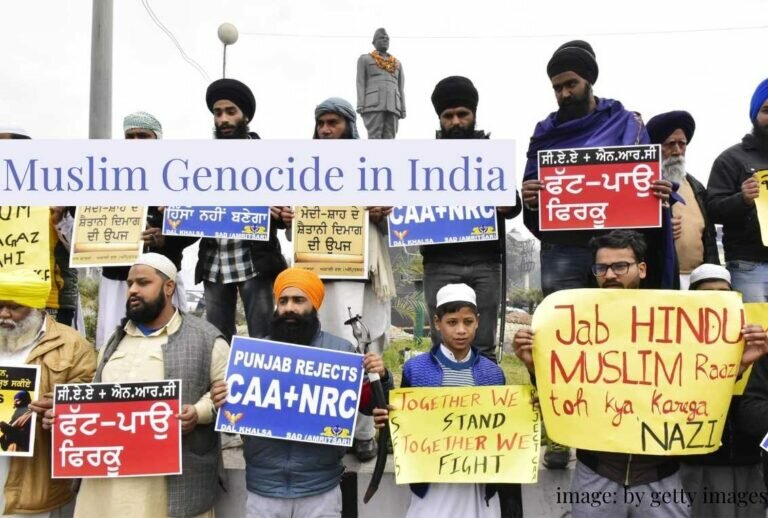Nuclear Proliferation and Nuclear Security – Explained
Nuclear proliferation is the spread of fissionable material, nuclear arms, and nuclear technology. Nuclear proliferation and nuclear security refer to preventing nuclear material, technology, and information to countries that have not been recognized as Nuclear Weapon States (NWS). It implies those countries which have not been recognized yet by Non-Proliferation Treaty (NPT), signed in 1968. The world’s first detonation explosion occurred on July 16, 1945. Since that time the world has seen the specter of its proliferation. After 1964, Nuclear Weapon States were given UN permanent seats. NPT 1968 recognized five countries US, Britain, France, Russia, and China as NWS. The rest world was non-NWS till 1968.
Aspects of Nuclear Proliferation
The threat posed by nuclear proliferation has three major aspects.
1. Horizontal Proliferation
The development of the ability to obtain or produce nuclear weapons by countries that don’t have nuclear weapons is called horizontal proliferation.
2. Vertical proliferation
The increase of weapons by those countries that currently have nuclear weapons. It can be an improvement of technicalities and the obtaining of new weapons. New weapons can be mini-nukes or battlefield weapons.
3. Another form of Horizontal Proliferation
It is obtaining nuclear weapons, its knowledge, and technology from non-state actors and individuals. It is also another form of horizontal nuclear proliferation.

Also Read: Climate Crisis of South Asia
Reasons to Prevent Nuclear Proliferation
Nuclear weapons are the most dangerous entities on earth. They jeopardize whole cities, countries, and even the whole world. One can destroy even the natural environment by using this. Although there have been only two times when they were used in warfare. And we all are not unaware of this. One was in Hiroshima and the other one was in Nagasaki. Both of these cities are in Japan. These bombings happened in 1945. Furthermore, 2000 nuclear tests have been conducted till now.
Leaders, scientists, generals, admirals, and heads of state have warned of the dangers. These warnings have been unheard of by the Nuclear Weapon States. We each have a responsibility on our shoulders to end this looming threat.
So, it is essential to prevent their proliferation because of several reasons.
Fulfill Existing Obligations
NWSs have made promises to the international community to negotiate for achieving disarmament. NPT confirms this obligation for five Nuclear Weapon States. They extended their promises in the 1995 NPT Review and Extension Conference. Once again it was extended in the 2000 NPT Review Conference. India & Pakistan have not done it yet because each of them wants another one to do so. The only state which possesses a Nuclear arsenal and has not made any promise is Israel. The main purpose of NPT is to reduce the world’s nuclear arsenals to zero.
Prevent Nuclear Terrorism
The existence of nuclear weapons endangers our safety. It is because they are prone to terrorist exploitation. All nuclear production sites of nuclear arsenals are vulnerable to terrorist attacks. Terrorists can steal weapons or even weapons-grade material.
Russia was split in 1991. Formerly, it was the Soviet Union. Now, Russia has weaker command of the safety of nuclear arms. It makes their arsenal easily available for terrorist attacks. Furthermore, nuclear weapons are not helpful in defending or responding to terrorism.
Stop Nuclear weapons Proliferation
The failure of the Nuclear weapon States to reduce their nuclear arsenals will proliferate them. If NWS will continue to maintain its security through nuclear arsenals, then other nations will also do. For instance, North Korea will also do the same. This country has less powerful military forces. It is reasonable for them to maintain their security this way. Without the essential development of the Non-proliferation treaty, it will be jeopardized.
Prevent Nuclear Accidents
Nuclear accidents can be very dangerous for the whole world. The risk of accidental war increases through miscalculation or malfunction. In a very short time period, a country cannot decide if it would have to retaliate or not. It can lead to accidental war. And, the whole world can be the victim of this. Furthermore, if we take the example of Russia, we know it was broken up. Its split has weakened Russia’s warning system. Since the location of many parts of the warning system was outside present Russia. It increases the risk of nuclear accidents.
Reverse the Concentration of Power
Nuclear weapons jeopardize the democratic system of a country. It is owing to giving power to specific individuals to destroy the world. No one should have this much power. If these few individuals make any miscalculation because of malfunction or any other reason, the whole world will pay for it.
Arms Control and Disarmament
Disarmament and arms control are being discussed and negotiated at the UN over the years. It resulted in arms treaties, negotiations, and resolutions. Many of them helped lead to international actions on disarmament. Some important international conventions are listed below:
Limited Test Ban Treaty (LTBT)
This treaty took place on August 5, 1963. It prohibits nuclear arsenals tests if explosions cause radioactive debris to be present outside the territory. These explosions can be in outer space, the atmosphere, underwater, and in any other environment.
Outer Space Treaty
This treaty took place on January 27, 1967. It prevented states from placing nuclear weapons into Earth’s orbit. Moreover, it inhibited states from installing such weapons on the Moon or other celestial bodies. No one can station any nuclear weapon in outer space in any other manner.
Strategic Arms Limitation Talks (SALT-I)
It took place on July 1, 1968. These negotiations prevented the manufacture of strategic missiles which are capable of carrying weapons. Besides, it included nuclear material. Moreover, these negotiations showed the arms race between the US and the Soviet Union.
Biological Weapons Convention (BWC)
This convention happened on April 10, 1972. It was the first treaty that banned the production of an entire category of weapons. Moreover, this treaty banned stockpiling and development also.
Anti-Ballistic Missiles (ABM)
This treaty took place on May 26, 1972. According to this treaty, the US and the Soviet Union agreed to have only two ABM deployment areas. Furthermore, this treaty made sure that the ABM areas cannot provide a nationwide defense.
Strategic Arms limitation Talk (SALT-II)
Thus treaty took place on June 18, 1979. It replaced the Interim Agreement with a long-term treaty between the US and the Soviet Union. Furthermore, this treaty provided broad limits on the strategic offensive weapons systems.
Comprehensive Test-Ban Treaty (CTBT)
This treaty took place on September 24, 1996. It provided a legal ban on all nuclear explosive testing.
Mine Ban Treaty
This treaty took place on December 3, 1997. Moreover, it seeks to eradicate landmines by prohibiting the use, production, and stockpiling of antipersonnel mines.
New Strategic Arms Reduction Treaty
A treaty between the Russian Federation and the United States took place. It took place on April 8, 2020. This treaty focused on further reduction and limitation of offensive arms to be met by Feb 5, 2018.
Also Read: Top 5 Movies for Bureaucrats
Conclusion
Nuclear weapons proliferation poses one of the greatest threats to international security today. To curb this issue an effective response is needed. This response should be multilateral. Currently, there are 9 states who are believed to have nuclear weapons. It includes Pakistan, China, Russia, India, the United States, North Korea, France, the United Kingdom, and Israel. Furthermore, there are 30 other countries that have the technological ability. Through this ability, they can easily acquire. The roles of nuclear weapons in international politics are evolving.
For wealthy, militarily powerful countries, nuclear weapons are not playing role in security planning. Some countries that are not having advanced technologies are desirable for their security. Nuclear proliferation has not guaranteed a bright future. Furthermore, it is now very important to bring all developing and developed nations on the same plane. Every country should implement all treaties approved by UNSC equally.







